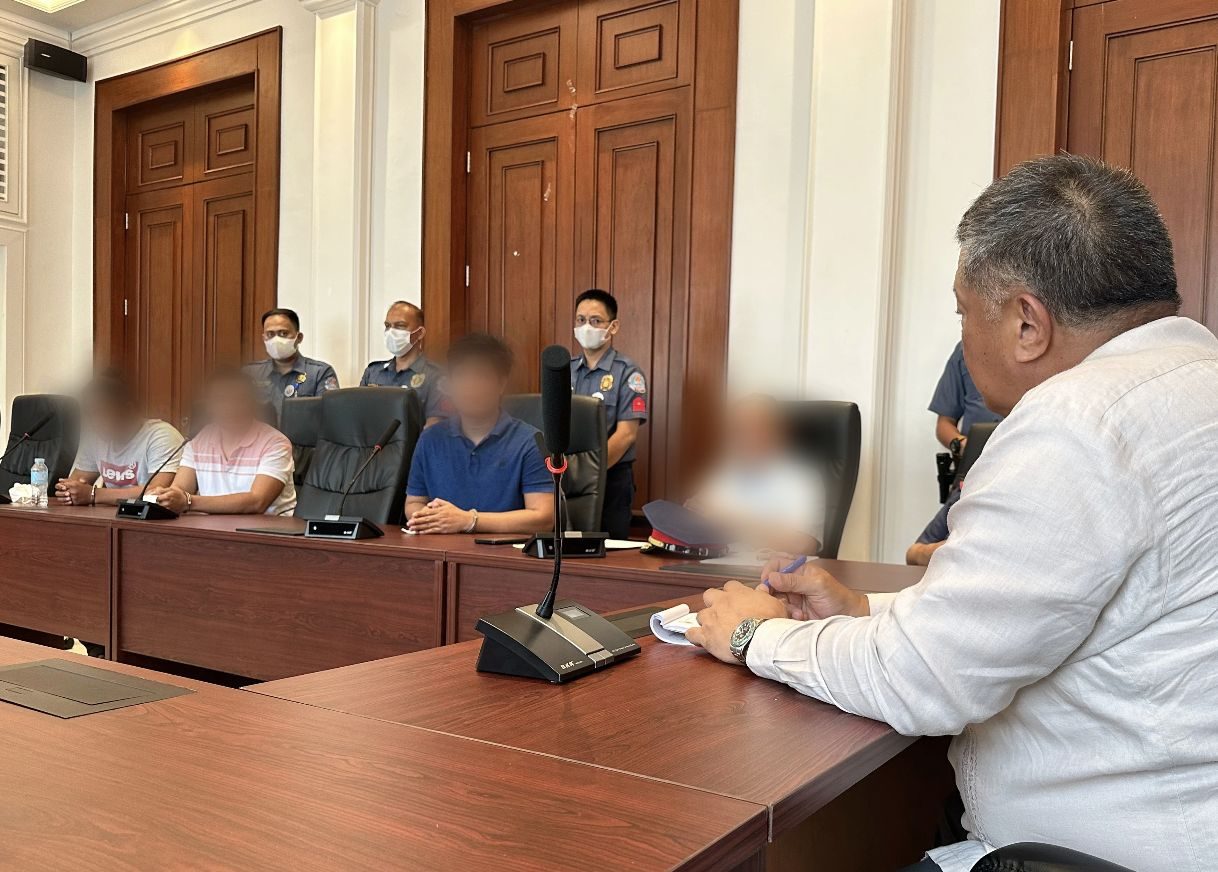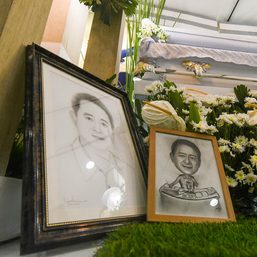SUMMARY
This is AI generated summarization, which may have errors. For context, always refer to the full article.

MANILA, Philippines – On Wednesday, November 22, the parents of Siargao-based Spanish businessman Diego Lafuente went to the Manila Regional Trial Court to hear the bail plea of their son’s alleged killers, three local island police officers whose defense has been the battlecry of Rodrigo Duterte’s drug war: that Diego fought back (nanlaban).
That Lafuente’s case reached the court level is already a rarity in the campaign for justice in the war that killed an estimate of 27,000 people, most of them Filipinos. Lafuente is one of the 52 cases that Duterte’s Department of Justice (DOJ) reinvestigated, and submitted to various international bodies, including the International Criminal Court (ICC) as proof that the local justice system was working.
The number 52 is a drop in the bucket in the 7,884 killings by police personnel in legitimate anti-drug operations. Lafuente’s case was the only one in the 52 that reached this far, at least according to the July decision of the ICC’s appeals chamber explaining why they think the investigation by the court’s prosecutor should push through.
“With respect to the list of cases concerning 52 cases, the Pre-Trial Chamber noted that the recommendations of the Internal Affairs Service contained in that list appear to consist of administrative findings and sanctions, with only one reference to a possible criminal process being a recommendation that an appropriate complaint be filed,” said the ICC’s July decision, when the Lafuente case was already in court and the police officers already in jail.
1 out of 52
Lafuente was killed early morning of January 8, 2020, and by January 13 that same year, the Commission on Human Rights (CHR) already initiated a fact-finding investigation. The CHR got the assistance of the Spanish embassy in reaching witnesses. By September 2021 or less than two years, the National Bureau of Investigation (NBI) had finished their probe and recommended charges of murder and planting of evidence against police officers Captain Wise Vicente Panuelos, Staff Sergeants Ronel Pazo and Nido Boy Cortez.
By March 2022, the DOJ prosecutors had indicted the three of the charges, however they went into hiding at first and surrendered only February this year. Although the CHR flagged the delay in the pace, a look at the documents of this case would show that Lafuente’s case moved quicker than usual.
The CHR, NBI, and DOJ managed to bring this case to court in two years, with the prodding of the European lawmakers who met with Philippine senators to urge expedited action.
Most of the 52 cases, or 15 of them, were from 2016 according to the DOJ’s matrix. There were 13 cases from 2018; 10 cases from 2019; 8 cases from 2020 and 6 cases from 2017. The 52 cases were singled out because the cops in these cases faced sanctions, but mostly just suspensions, and a few were demotions and dismissals from service. In Lafuente’s case, the cops were initially just meted out with 60-day suspensions.
‘Staged armed encounter’
Lafuente was a surfer who went to Siargao as a tourist in 2018, and stayed there to run a bar, his last known location before his killing on January 8, 2020. The cops said they held a buy-bust for Lafuente, who they knew to be a cocaine user and dealer. In their story, their informant bought cocaine from Lafuente. After being busted, Lafuente allegedly drew a gun from his belt bag and fired, forcing the cops to shoot in self-defense.
Lafuente was not in the barangay drug list, said the NBI. The NBI also said that CCTV from the bar showed that Lafuente did not have a belt bag when he left.
An examination of the crime scene led the NBI to say that “what actually transpired was a staged armed encounter.” The NBI said the shooters – including Lafuente if he indeed fired a shot – were just a few meters away from each other.
“Thus, injuries from both parties could have been easily expected, given their proximate relative positions. Interestingly, Diego was the only casualty, or wounded at the very least,” said the NBI report.
The fired cartridge cases (FCCs) allegedly from Lafuente were also found within the triangle of the other FCCs found, leading the NBI to say “instead of running away, Diego was essentially moving around them – an action that is contrary to the natural reaction of a person who flees escape.”
Friends of Lafuente also testified that he did not own a gun, nor was there any registration found in his name in the records of the Philippine National Police, the country’s issuer of firearms licenses. The gun allegedly used by Lafuente was traced back to a company with an address in Manila. “Diego was not armed,” said the NBI, saying that a 9mm cartridge found near Lafuente matched Cortes’ firearm.
Lafuente sustained six gunshot wounds, but the first shot that went into his right ear and exited the left side of his neck was the fatal one, according to the medico-legal report. This shot was fired, the NBI said, when Lafuente “was already half-seated or half-lying on the ground.”
“It is evident that the allegation of herein subjects that Diego was in control and in possession of a gun was part of their grand plan to justify the unlawful killing ” said the NBI.
Panuelos, Paso, and Cortez filed a petition for bail early October this year, which the Manila Regional Trial Court (RTC) Branch 1 heard on Wednesday. Murder is a non-bailable charge, unless the accused win their petition for bail.
In the drug war, there were convictions only in three cases – the killings of teenagers Kian Delos Santos, Carl Arnaiz, and Reynaldo De Guzman. – Rappler.com
Add a comment
How does this make you feel?







![[Vantage Point] The PDEA leaks](https://www.rappler.com/tachyon/2024/05/vantage-point-pdea-probe.jpg?resize=257%2C257&crop=255px%2C0px%2C720px%2C720px)
![[Edgewise] How Duterte can elude ICC arrest](https://www.rappler.com/tachyon/2024/05/thought-leaders-How-Duterte-elude-icc-arrest.jpg?resize=257%2C257&crop=272px%2C0px%2C720px%2C720px)

![[Pastilan] The Great Philippine Identity Sale](https://www.rappler.com/tachyon/2024/07/great-philippine-identity-sale-july-16-2024.jpg?resize=257%2C257&crop=486px%2C0px%2C1080px%2C1080px)



![[OPINION] Rodrigo Duterte and his ‘unconditional love’ for China](https://www.rappler.com/tachyon/2024/04/rodrigo-duterte-xi-jinping-august-2019.jpeg?resize=257%2C257&crop=91px%2C0px%2C900px%2C900px)



![[The Slingshot] Lito Patay’s 4 hours and 38 minutes of infamy](https://www.rappler.com/tachyon/2024/07/Lito-Patay-4-hours-infamy-July-19-2024.jpg?resize=257%2C257&crop=233px%2C0px%2C720px%2C720px)
There are no comments yet. Add your comment to start the conversation.